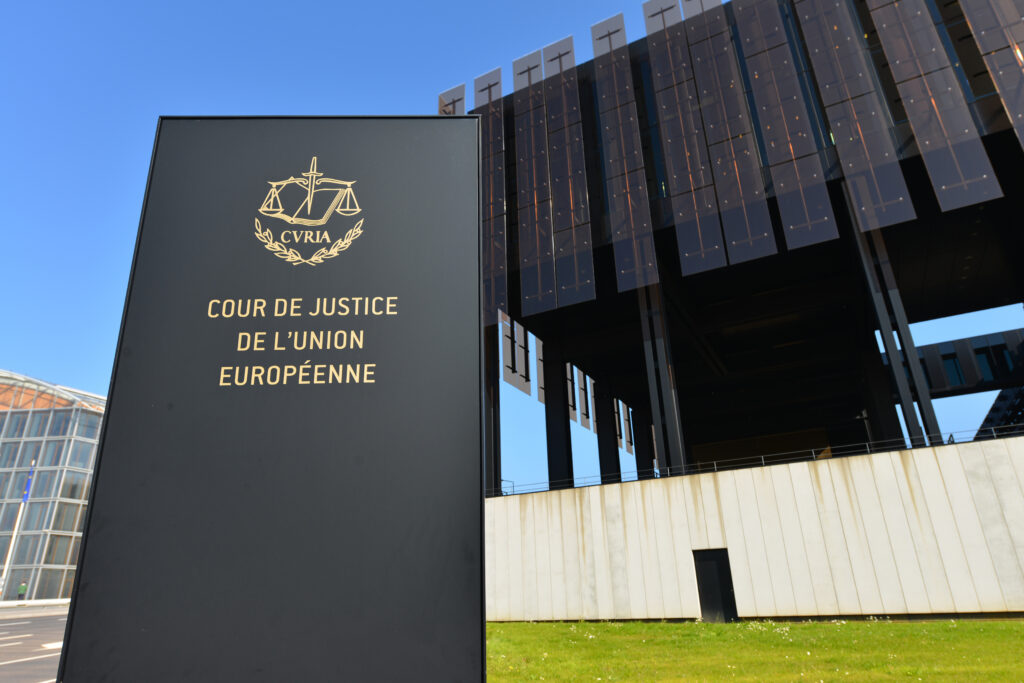Yesterday (1 July 2025), the Supreme Court passed a resolution confirming the validity of Karol Tadeusz Nawrocki’s election as President of the Republic of Poland.
This decision was not surprising, of course. What was surprising, however, was that, contrary to his statements on Monday (30 June 2025), the Attorney General – Minister of Justice Adam Bodnar – took part in the Court’s session. He naturally upheld his request to exclude all judges of the Extraordinary Review and Public Affairs Chamber of the Supreme Court from adjudicating in the case. This request, which was found to be completely unfounded and aimed at creating a situation directly contrary to Article 26 § 1(2) of the Act on the Supreme Court – according to which this Chamber is competent to rule on the validity of presidential elections (and thus indirectly contrary to the Constitution) – was, of course, rejected. Despite this, Minister Bodnar continued to participate in the hearing, addressing the panel of judges as ‘Your Honour’ and presenting his position on the case.
In response to the above request from the Prosecutor General, the Reporting Judge, Maria Szczepaniec, referring to the fact that the validity of the 2023 parliamentary elections, as a result of which he took office as a senator, had also been ruled on by the Extraordinary Review and Public Affairs Chamber, asked the Minister the following question:
Do you feel that you were improperly elected as a senator, a so-called neo-senator? At the time, you did not protest, as far as I recall.
In response, the Minister attempted to nuance his statement, pointing out that the nature of the court’s ruling in both situations was different. However, this distinction may raise doubts in light of the very similar wording of the provisions of the Constitution regulating the role of the Supreme Court in both situations, as pointed out, for example, by Professor Robert Gwiazdowski:
Referring to the merits of the validity of the elections themselves, the Supreme Court stated that:
the number of protests lodged does not increase the weight of the identical allegations contained therein if those allegations are identical in content and do not concern the specific and actual interest of the person lodging the protest. In such a case, the effect of scale is irrelevant from the point of view of the assessment made by the Supreme Court. The Supreme Court made a similar statement in 1995, pointing out that elections cannot be assessed on the basis of the number of protests lodged (see Supreme Court ruling of 5 December 1995, III SW 247/95).
It was pointed out that out of 55,274 election protests lodged (including 49,527 with identical content, in accordance with the template prepared by MP Roman Giertych), only 22 protests were found to be justified, but at the same time the Supreme Court stated that they had no impact on the election results.
As part of the examination of the protests, evidence was gathered by inspecting the ballot papers cast in 24 commissions. In 15 of them, irregularities were found in the results of the vote recorded in the voting protocol for the constituency: in 13 cases to the detriment of Rafał Trzaskowski and in 5 cases to the detriment of Karol Nawrocki (in some commissions, the errors were to the detriment of both candidates). This means that, as stated by the Supreme Court:
A total of 1,741 more votes were cast for the candidate for President of the Republic of Poland, Rafał Trzaskowski, while 1,661 fewer votes were cast for the candidate for President of the Republic of Poland, Karol Nawrocki, than declared in the protocol of the National Electoral Commission. Taking into account the difference in the number of votes cast for each candidate, which amounted to 369,591 votes, the irregularities found did not affect the outcome of the election. Taking into account the irregularities in the protocols, the difference between the candidates would be 366,191 votes.
It was also emphasised, in line with what we reported last week, that the provisions of the Electoral Code do not provide for the possibility of recounting votes in all polling stations in Poland:
It is possible to inspect ballot papers, but only in relation to specific polling station committees if it is demonstrated that irregularities occurred during the counting of votes or the drawing up of the voting protocol. Making such a decision based solely on the reported likelihood of irregularities or statistical analysis is completely unjustified and would be contrary to the law.
Particularly noteworthy is the position of the second participant in the meeting, alongside the Prosecutor General, namely the Chairman of the National Electoral Commission, Judge Sylwester Marciniak. Namely, he distanced himself from the position expressed in the report of the National Electoral Commission, according to which abuses had occurred during the elections that could have affected their outcome:
During the Supreme Court hearing on the validity of the election of the President of the Republic of Poland on 1 July 2025. the Chairman of the National Electoral Commission modified the position of the National Electoral Commission and indicated that, in view of the results of the evidence proceedings conducted in the course of the examination of the election protests by the Supreme Court, the aforementioned incidents could not have affected the outcome of the election.
However, it is equally important to note that, in response to a question from one of the judges, the Chairman of the National Electoral Commission admitted that the current composition of the National Electoral Commission may raise legitimate doubts, as, with regard to its seven members elected by the Sejm, in accordance with Article 157 § 2. point 3 of the Electoral Code, the principle of proportional representation in parliamentary or deputy clubs, referred to in § 4a of that provision, was not respected, as a result of which the majority in this composition was obtained by candidates nominated by the current ruling majority.
Returning to the substance of the decision, referring to the statements made during the meeting by the Prosecutor General, according to which:
the exact number of votes cast for individual candidates is not known
– the Supreme Court recalled that the essence of the decision on the validity of the elections – which was the subject of the meeting – is not to determine the exact number of votes cast for individual candidates:
The fact that every voter’s vote is equally important and that every effort must be made to ensure that it is attributed to the candidate for whom it was cast must be assessed in the light of Article 127(6) of the Constitution: ‘The candidate who receives the most votes in a second ballot shall be elected President of the Republic.’ Therefore, in order to decide on the validity of the presidential election, it is important to determine which candidate received more votes in the second ballot. All the circumstances clearly indicate that Karol Tadeusz Nawrocki received more votes than Rafał Kazimierz Trzaskowski in the second ballot.
Therefore, as expected and predicted, among others, by the Ombudsman, the Supreme Court confirmed the validity of the presidential election won by Karol Nawrocki.
Pursuant to Article 130 of the Constitution, the next step leading to Karol Nawrocki taking office as President of the Republic of Poland will be his swearing-in before the National Assembly (the combined Sejm and Senate). Sejm Marshal Szymon Hołownia, in accordance with his duty under § 1(1) of the Resolution of the National Assembly of 6 December 2000 Regulations of the National Assembly convened for the purpose of the swearing-in of the newly elected President of the Republic of Poland, announced that he would convene the National Assembly for this purpose on 6 August 2025.
Thus, everything indicates that the suggestions made also by Minister Bodnar that the Marshal of the Sejm, contrary to the provisions of the Constitution, should take over the duties of the President, will not be taken into account.
It is, of course, gratifying that the ruling camp has not, as it seems at the moment, decided to take action, at least in this area, which would essentially constitute a coup d’état. However, it must be regretted once again that in recent weeks, representatives of this camp, led by Minister Bodnar, have committed a series of actions and made statements that have contributed to a significant reduction in public confidence in democratic processes, the institutions that safeguard them and the entire legal system of the Republic of Poland.
Image source: Adobe Stock.



